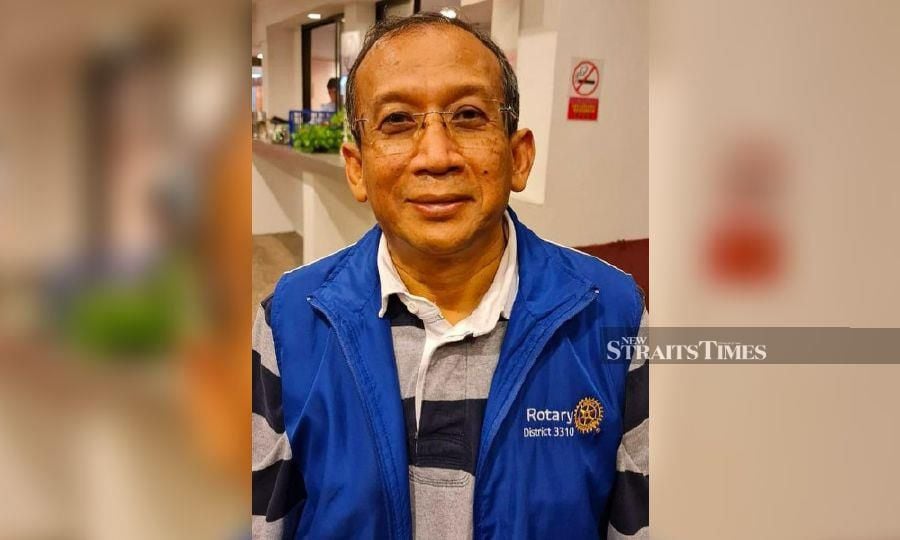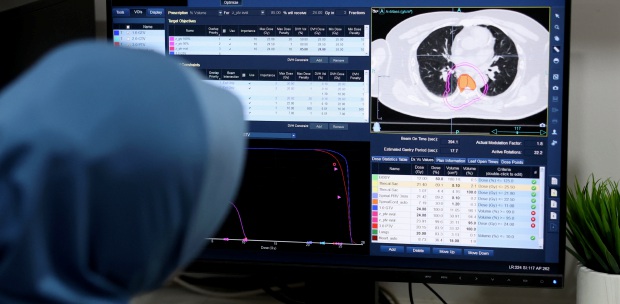JOHOR BARU: One doctor here is going above and beyond the idea that making children laugh and having fun is beneficial for their physical and mental health.
Dr Abdul Razak Samsudin, a general surgeon from KPJ Puteri Specialist Hospital, pays regular visits to children with cancer at the Paediatric Oncology Ward at Sultan Ismail Hospital (HSI) here.
The 64-year-old believes that smiling and being more interactive are "more powerful" than pain medication. He creates joy and plays with all the children at the cancer ward.
Dr Razak finds it easy to spread joy and happiness because his smile and laugh are enough to illuminate a whole room.
Dubbed the "Beaming Doctor" by the entire ward, his presence is always greeted with much delight.
Dr Razak, who joined the Rotary Club of Johor Straits View (RCJSV) in 1999, started a project called "Sunshine Children". As part of the club's signature project, he and his team make regular visits to the Paediatric Oncology Ward at HSI.
During their visits, Dr Razak and his team members interact and bring cheer to the children, as well as distribute gifts and food items.
In fact, he said, there was science behind interactions with children and lifting their spirits.
Studies show that when people laugh, smile and are interactive, the effect on the brain is more powerful than pain medication.
"It has a clinical value as it allows the doctor to assess a patient's physical abilities, mobility and recovery process," Dr Razak said.
The consultant general surgeon said a child with cancer needed lots of support. So, it is his responsibility to ensure that the child is at ease, relaxed and comfortable.
Dr Razak said as a medical professional, he understood the anguish and pain the parents were going through.
"I know how much these parents have to bear while watching their child undergo cancer treatment," he said.
He said in Malaysia, the top three cancers affecting children below 14 years were leukaemia (47.1 per cent in males, 45.5 per cent in females), brain and nervous system cancer (13.8 per cent in males, 16 per cent in females) and lymphoma (11.3 per cent in males, 8.4 per cent in females).
He said the number of cancer cases among children up to 18 years was 3,892.
From these cases, 2,131 (55.7 per cent) are males and 1,698 (44.4 per cent) are females.
Dr Razak said these four words — "Your child has cancer" — had the power to change a family's life in an instant.
"What comes next depends on many factors. One of the most critical is the people surrounding the family at their worst moment.
"It is devastating to tell parents that the treatment has failed and there is little hope of a cure for their children."
Dr Razak said, however, it was not all despair and sorrow.
"There are moments when a doctor can say these four transformative words — 'Your child is cured'.
"As a medical doctor, he said, when the family felt hopeless and lost, especially young couples, he tried his best to comfort and support them.
From time to time, Dr Razak and his team from RCJSV take the initiative to organise gatherings for the children and their parents. This, he said, helped a little to ease the suffering and misery of the parents.
At the events, Dr Razak said, he would encourage families to meet and share the difficult moments they were facing, and that made a lot of difference.
"We want to let them know that they are not alone as we are there for them during their difficult moments."
He said providing emotional and psychological support to families with young cancer patients was important.
Dr Razak lauded the spirit of young cancer patients and the courage they show in facing the dreaded disease head on.
For these children, he said, RCJSV organised trips such as a cruise, hosted them at Christmas parties and even celebrated their birthdays.
He said "gift hampers" were also presented to the children, adding that the club usually provided medical equipment and supplies such as wheelchairs, diapers and therapeutic milk.
Going a step further, he said, those children diagnosed with terminal cases may make "a last wish" and their request would be fulfilled.
For Dr Razak and his team, bringing a little joy to the children and parents comes naturally.
Studies show that when children laugh, smile and become more interactive, the effect on the brain is more pronounced than taking pain killers.
"Our mission is to support children with cancer and let them know that they are not alone in their fight," he said. "Lest ye forget, cancer cannot cripple love, it cannot shatter hope, and it cannot conquer the spirit."





